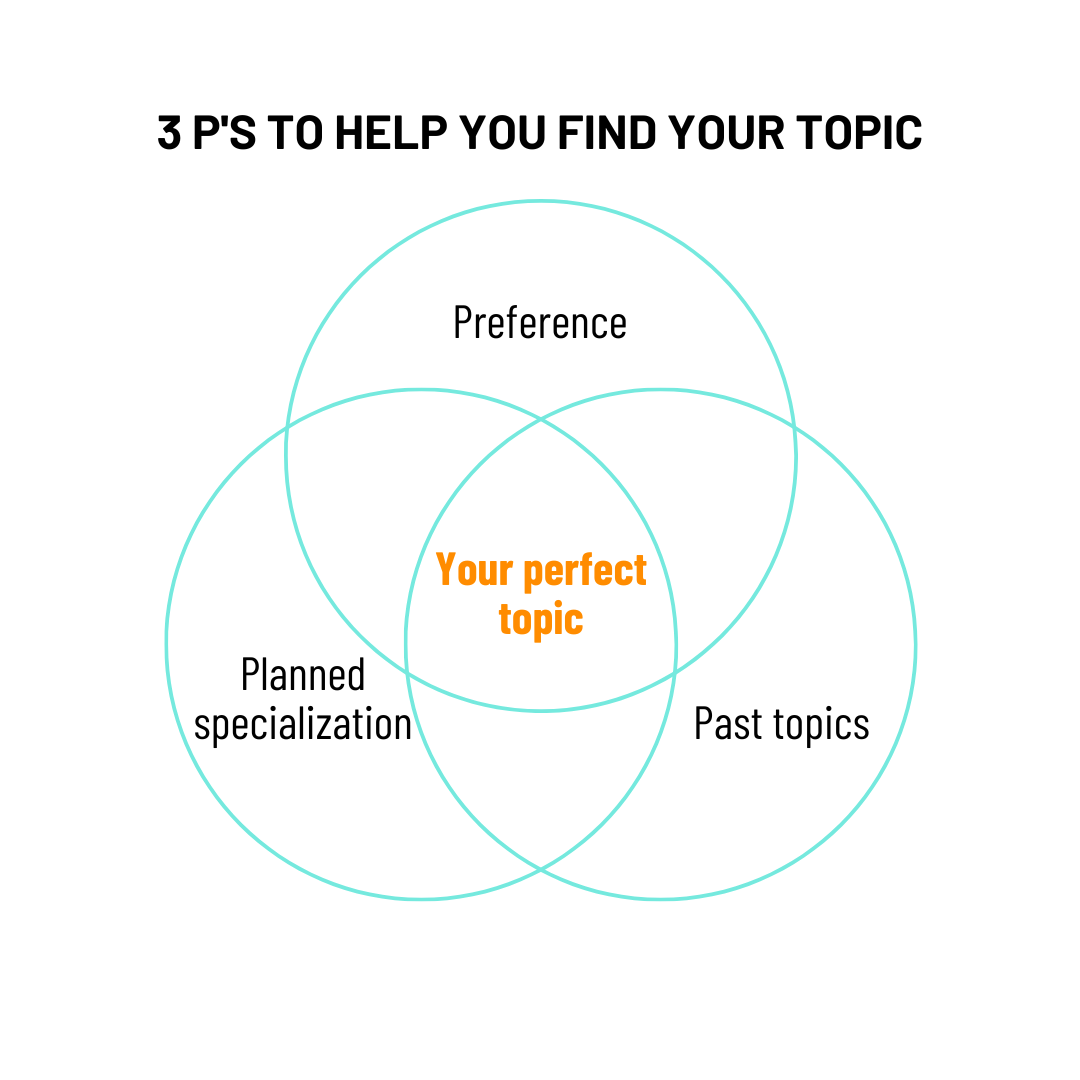• Keep an open mind and don’t be too selective right away.
• Use different methods of brainstorming.
• Try to get genuinely excited about the subject area.
Identify the seminar topics which you liked most
Most academic papers must be written for a course you attended during the semester. In this case, your first step should be to think about the course or seminar and answer the following questions honestly:
- Which sessions do you still recall in some detail?
- Which topics were you interested in the most?
- Were there any topics that turned out to be much more exciting than expected?
Using this technique, you will surely be able to make a list of 2-3 topics that have managed to spark your interest. To make this process easier, you may consider keeping a reflective journal during the semester: Write down a short summary of what was discussed in each lecture and which thoughts or questions came up for you. This method can motivate you to pay closer attention in class and help you identify the subject areas you are most passionate about.
Get inspired
If you are not yet satisfied with the results from the previous method, you can try to draw a mind map. Pick a few keywords you remember from your lectures and write them down separately in the middle of a piece of paper. Next, add all the related terms you can think of, getting more specific the further you move away from the center. Try to find as many words as you can without judging their quality just yet. You will be surprised how well you understand certain topics already!
Keep in mind the following questions during the brainstorming process:
- Did your lecturer talk about a problem or question which still lacks a good answer?
- Did you have any questions or remarks when you heard about a certain topic?
- Did you come across something when you prepared for this course?
- Talk to your friends or fellow students: Do they mention something interesting?
- Do you know older students? Which topics did they choose when they wrote a paper for this course?
After answering these questions, you should have enough ideas to build on for your paper. If you still cannot think of anything, don’t hesitate to contact your lecturer and talk to him about your difficulties.
Consider your plans for the future!
When you are faced with several possibilities of what to do, you should always take into your account your individual strengths and preferences. Maybe you have written a paper about a related topic or prepared a presentation for the seminar. Why not use this knowledge for your next paper?
Some students already have an idea of what they would like to do after their studies (e.g. career-wise) or which study area they would like to specialize in. Are there any ways to combine your future specialization with your current paper? For example, you could use this opportunity to expand your knowledge about an issue that will be relevant for you in the future.
And last but not least: Don’t forget about the fun! A good idea for a seminar paper will excite you and you will really look forward to working on it.

- Don’t choose a topic of your own if your professor has already suggested one.
- Don’t overthink. Sometimes an idea is closer than expected.
- Don’t forget about yourself! You should look forward to working on your idea.
test yourself
Try to answer the following question.
how can you find inspiration for your topic?
- By copying other people’s ideas
- By randomly selecting a topic
- By exploring your interests, hobbies, and passions
Solution:
C – Think about what you enjoy doing in your free time, what you like to read about or watch, and what topics you find yourself discussing with friends and family. You can also consider current events or issues that you feel strongly about or that are relevant to your field of study or work.
What’s important when coming up with a topic?
- Your interests, hobbies, and passions
- That it’s popular, regardless of whether you’re interested in it or not
- That it’s controversial and will cause a lot of debate
Solution:
A – You should choose a topic you are genuinely interested in and have some expertise or knowledge about. Additionally, you should consider the scope of the topic and whether it’s feasible to cover within the given time and resources.
How can you use the topic of your paper for your further studies?
- You can’t, as it’s a one-time assignment
- By plagiarizing from it
- By building on it and deepening your understanding of the topic
Solution:
C – The topic of your paper can be used as a starting point for further research. You can build on your previous findings by conducting follow-up studies, expanding your research to a broader population, or examining the topic from a different perspective.
What’s an academic paper for?
- To promote your personal beliefs and opinions
- To show off your knowledge and impress your professors
- To present an argument or analysis on a specific topic or question
Solution:
C – An academic paper serves as a means of assessment for the student’s understanding of the material, as well as their ability to research and write in a clear and organized manner. Finally, academic papers can be used to share knowledge, inform policy decisions, or generate new research questions.
Who can help you if you have difficulties with your paper?
- You should rely only on your own knowledge and not seek help from others
- Your professor, fellow students and writing tutors
- Hausarbeiten, and no one else
Solution:
B – It’s important to seek help as soon as possible if you are struggling with your academic paper, to ensure that you have enough time to make the necessary revisions and improvements.